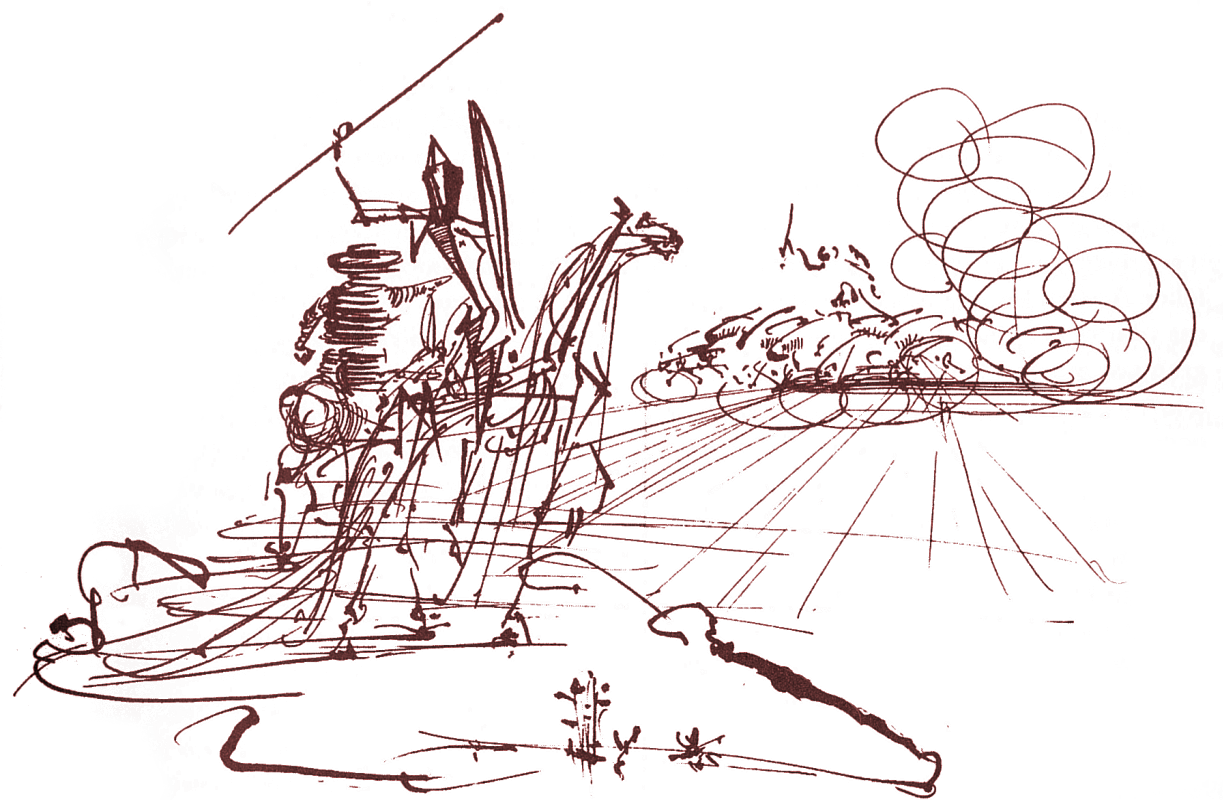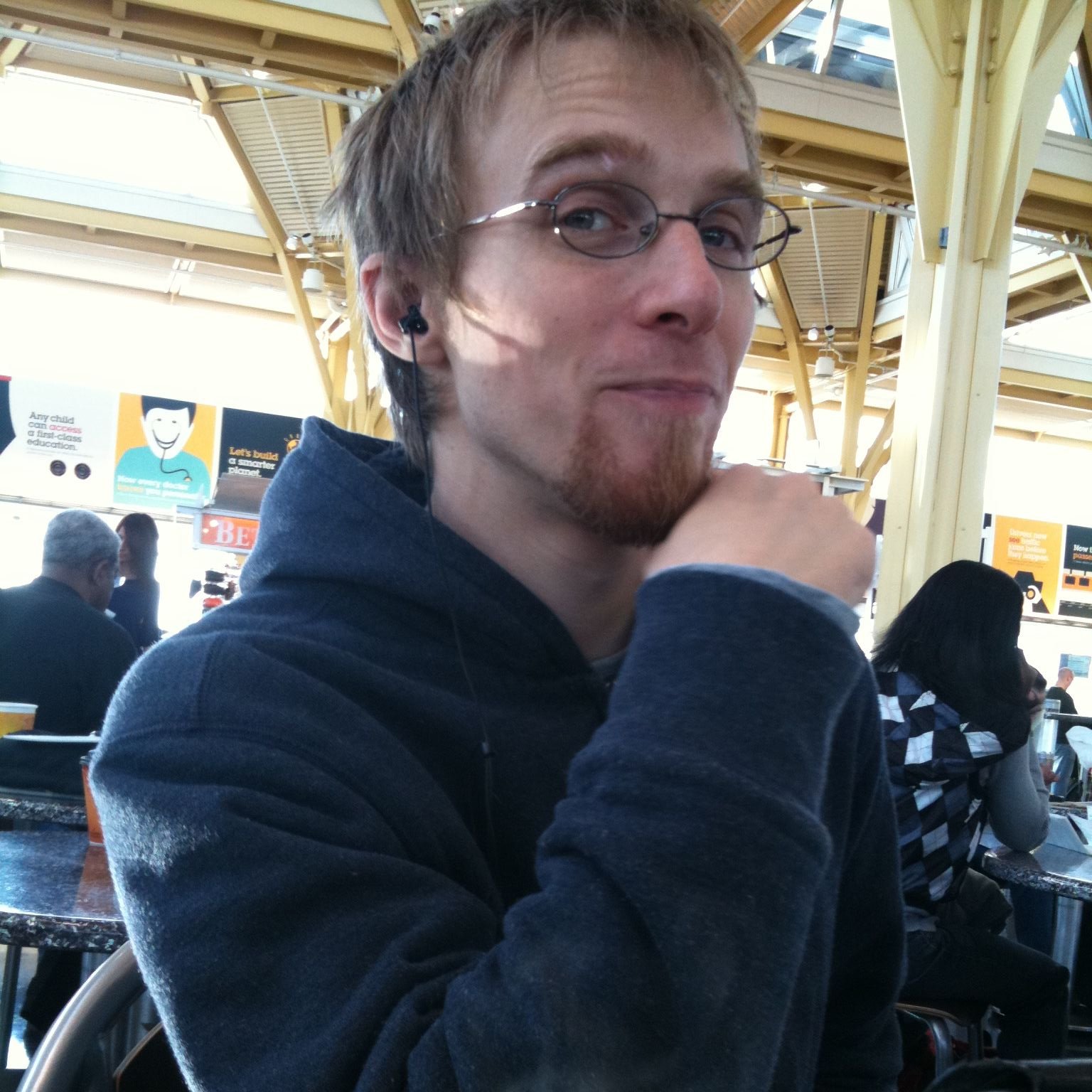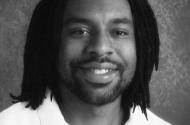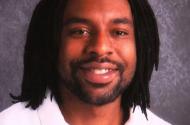Emma Watson gave an excellent speech to the UN where she claimed that men suffer from gender stereotypes, too. She called men to join women struggling for feminism, and asked men to draw from experiences of being stereotyped because of their gender in order to join in the struggle for women’s rights. So I ask: how can a white man draw from his experience of gender stereotypes? Is a white man’s experience of gender stereotypes really comparable to a woman’s experience of patriarchy?
I believe in intersectionality: that race, gender, sexual identity, physical ability, and class cannot be considered independently from one another. Or rather, that they must be each unpacked and understood individually, but that they’re part of an undivisible whole representing the margins of our society. Only by taking the margins of our society as our figure rather than our ground can we truly see the "normal" aright.
But you see, I am a part of the “normal.” White, straight, middle-class, (mostly) able-bodied, and male. So where is my place in an intersectional movement? Do my experiences of gender stereotypes qualify me to speak out about the oppression I’ve experienced?
Do White Men Experience Oppression?
What men experience through gender stereotyping can create trauma, just as can a woman's experience of patriarchy. But the difference between our experiences is that a systematic privileging of men over women (patriarchy) in nearly all matters of life can be shown statistically. 1 in 5 women experience rape compared to 1 in 71 men. Women are paid at 77% of the male wage. Patriarchy is still alive and kicking.
So when white men experience trauma because of gender stereotypes, it can be traumatic, but it’s not oppression. This is an important point, because, as a man, when I admit this, it removes me from comparing my trauma to oppression. I can no longer compete along the “who’s most oppressed” axis. So how do we both accept our own traumas as (white) men and not pull an "I’m oppressed too", card?
Intersectional Spaces: Hearing Non-Majority Voices
LGBTQ, feminist, and anti-racist spaces have traditionally been places where people whose voices are silenced by majority have a voice. Such spaces can facilitate intersectional conversations about how different forms of oppression interact and reinforce each other. But most importantly, the narratives of oppressed people are put front and center.
Watson makes the point that white men often do not feel welcome in these spaces, perhaps because (me talking here) feminists, LGBTQ folks, and people color often refer disparagingly to "loud white men" and talk about them "shutting up" or, politely, "making room."  I’ve heard open conversations on whether or not white men should be included in the movement at all. Seem pretty mean-spirited? Read on.
I’ve heard open conversations on whether or not white men should be included in the movement at all. Seem pretty mean-spirited? Read on.
This is because men, who are used to being listened to and their opinions heard, often talk before listening when they’re invited into intersectional spaces. Men will talk about the traumas they’ve experienced as a way of showing empathy or even because that’s what everyone else seems to be doing. Sometimes, they even do it as an unconscious way of jockeying for power in a space that does not privilege them. This is a thing. Mansplaining.
But even if intersectional spaces are uncomfortable, it is essential to enter into these spaces as a white man. For it is there that people like me (white, straight, men) learn about "white privilege" and how it shaped our destinies like how the One Ring bent Isildur to the will of Sauron. (Or you can read this explanation of privilege using the metaphor of a bicycle.)
If you are a white male entering an intersectional space, please remember that those in the space who have experienced systemic oppression must be given preferential treatment to speak, their voices heard. Do not place your experiences of trauma on the same level as structural violence and oppression. If you do, you will be competing for the authority with people who have experiences of actual oppression.
As a white man entering an intersectional space, spend time listening before you choose to contribute. If you open your mouth and try to place your experiences of trauma on the axis of oppression, people will shut you down, even if you have the best of intentions, because other men have dominated intersectional spaces to mansplain oppression to immigrants, people of color, women, and LGBTQ folks.
But if you have really experienced trauma and were truly working to empathize, you may go home feeling like your experience of trauma was invalidated (and the anti-racist trainers I have known will not cry tears for you, and they’ll tell you so).
There is a danger in this: you may feel that you don’t want to identify as a feminist or a white ally, because you may associate feminism or being a white ally with disassociating from your own experiences of trauma, which is (ironically) the opposite of feminist theory, which insists that one's own experience should be the starting place for understanding the world, rather than external authorities.
But you cannot just listen. You cannot feed on information alone or you will awaken one day from unsettling dreams to find yourself transformed in your bed into another enraged liberal news-junkie that has all the statistical solutions but no heart and no action. In order to truly learn spiritually, to get the experiences of solidarity out of your head and into your soul, you have to look at your own experiences.
How to Turn Trauma into Refreshing Trauma Lemonade
I’m committed to grounding my theology in my own experiences. Building experiences of empathy with oppressed people starts humbly with the most basic experiences you’ve had as a human, from your own sense of fairness and right and wrong.
Perhaps you have experienced your older brother taking a toy away from you. It was unfair, and so you can understand what unfairness means. Perhaps you have been brought up to feel like you had to earn the paycheck that sustains the family, and that you are not a real man if you don’t. Perhaps you have been raped. Perhaps an older man with a fatter resume but less on-the-ground experience was chosen over you for a panel. Perhaps you have a chronic illness or are differently abled. Perhaps, in spite of the statistics, a woman or person of color was chosen over you for a job that you felt you were more qualified for. Maybe you were bullied. Maybe you were ostracized and called “queer” or “fag” because you were different.
Use your traumas to understand what it must feel like to experience trauma not because something bad happened to you, but because that’s the slant of the world, because the world puts you down for the simple reason that you were born different. You, oh white man, can empathize with oppression in terms of its traumatic result because you have experienced trauma, too. But what you as a white man cannot fully understand is the way it feels when society slants your path so that you must always walk uphill. The opposite is true for you, and that's called white privilege.
But there is hope for you yet, oh white man. As Dhoruba Bin Wahad puts it, "The only way for a European or any white person to understand racism is through interacting with people of color in a principled way, through dealing with people of color in the struggle against white skin privilege."
What this means is that you’re going to have to get off the internet and join movements for social change. You have to build relationships with people who are black, trans, feminist, or differently abled. (And please don’t just glom onto one person who is all four and parrot their every word as the Gospel of Intersectionality. That is tokenizing.)
It is through these relationships in the context of struggle for social change that you will be transformed from just another person with forceful opinions into one who has committed their life to solidarity.
Right now, if you haven’t been seeking out intersectional voices, you’re in a filter bubble. We’re all in a filter bubble, but yours is likely filled with white people in white filter bubbles. Break your bubble. Find different voices. Share that content and help break your friend’s white filter bubble. But do it respectfully and invite conversation. Dialog always starts with a willingness to be converted yourself. Even if that would take quite a bit of doing.
But remember what I said about not glomming onto tokenized analyses? Sometimes the intersectional voices that show up in my newsfeed are deconstructionist. And we need to deconstruct the status quo violence of racism, sexism, ableism and other forms of discrimination. But there is a pervasive sense amongst radicals that those who critique are the most holy and the most pure. In a world marred by systemic sin, good projects often serve evil ends. It is important to incorporate intersectional critiques but not to let critique lead to apathy or inaction.
The best voices are those that are building new realities and worlds. Those that are empowering young leaders, building grassroots communities and structures, and working directly with marginalized groups. Imperfect transformative action for social change is purer than critique. Like, for instance, getting on the street and protesting. Protest is a critique that is critiqued from all sides.
When you get your hands dirty with on-the-ground work and make choices about what you will prioritize and what you will not, you will always be open to critique. Make sure that at the cornerstone of your building are those for whom you are working: marginalized people. They should be making the decisions in your communities.
Remember that critique is an opportunity to reflect on whether or not you are rooted. So listen to critiques, especially from marginalized groups, but listen to a diversity of marginalized voices. (The above four paragraphs have been edited since publishing.)
Stern Conclusion: The Danger of Drinking Unfiltered Trauma Lemonade
My traumatic experiences are the fodder for my solidarity.
But that’s not always how people use trauma; often trauma perpetuates a cycle of abuse. For instance, boys who experience domestic violence are one-hundred times more likely to become abusers than those that don’t. As has been much-discussed in the alt lit and gaming circles, being bullied and marginalized doesn't mean that will do no harm to women. In fact, if you have experienced bullying or trauma, you are in danger of becoming a bully. But you are also in a powerful place to build empathetically through love.
The problem in intersectional spaces is that sometimes-ostracized men repeat the experience of being shouted down. Those who have been been bullied raise their voices precisely because they have been silenced by bullies. They mansplain. And then, predictably, they are silenced, often by other white men that mansplain to them exactly how anti-anti-oppressive or anti-intersectional they are. Or the one who silences may even be a member of a statistically marginalized group who is repeating the experience of being silenced. We are all in danger of becoming the one who oppressed us.
But it is not always bad when the space is controlled in a loving way. This is because it is dangerous when white men white men who cannot fully experience oppression keep talking and come to positions of power in movements for social justice where they might not have as much skin in the game as statistically marginalized people.
I unpack this not to justify the behavior of white men but to understand and explain it. I am calling you men who have experienced trauma to recognize your own trauma as valid, and to use your experiences of trauma to really listen to those who been traumatized by oppression: the statistically marginalized.
I also write this in the hopes that facilitators of intersectional spaces can keep the integrity of anti-oppression spaces while not trivializing the traumas of those that don’t fit into the race, gender, class trifecta.
But I am speaking primarily to the white males out there. Be big-hearted and love deeply across the lines of race, class, and gender. Learn empathy from your own experiences of trauma. Begin by changing yourself and your own community, if you can. Don’t insert yourself as "savior" in the communities where you haven’t been invited. Always listen to and prefer the voices of those who have experienced oppression. Identity as a white ally and then act like one. Don’t seek to lead, seek to follow. View yourself as a facilitator and an organizer, not a "leader." Look to the margins of your group and see who is being left out. And love yourself and accept that your experiences of trauma are legitimate. Use them as a bridge rather than a wedge. Turn your empathy into action. And don’t leave the movement.
Here are some concrete ways to live out the struggle against supremacy in all its forms.
I will let others tell you how to join the movement (go to Ferguson!), but I do this through building multiracial, multi-class communities organizing for food equality.
What is your advice to white men? What is your experience as a white man in intersectional spaces? Feel free to post links or whatever you think is appropriate.
Hate speech of any kind will not be tolerated. This is a safe space.
Interested in learning more? A while back I wrote about how early Christian communities worked to dismantle class and race, and so can you.
Finally, some of these thoughts were sparked in a conversation that came out of reading Mia McKenzie's piece, "Why I’m Not Really Here For Emma Watson’s Feminism Speech At the U.N." But my perspective doesn't map directly, most of my thoughts are the result of a ten-year journey that I've long struggled to articulate.










